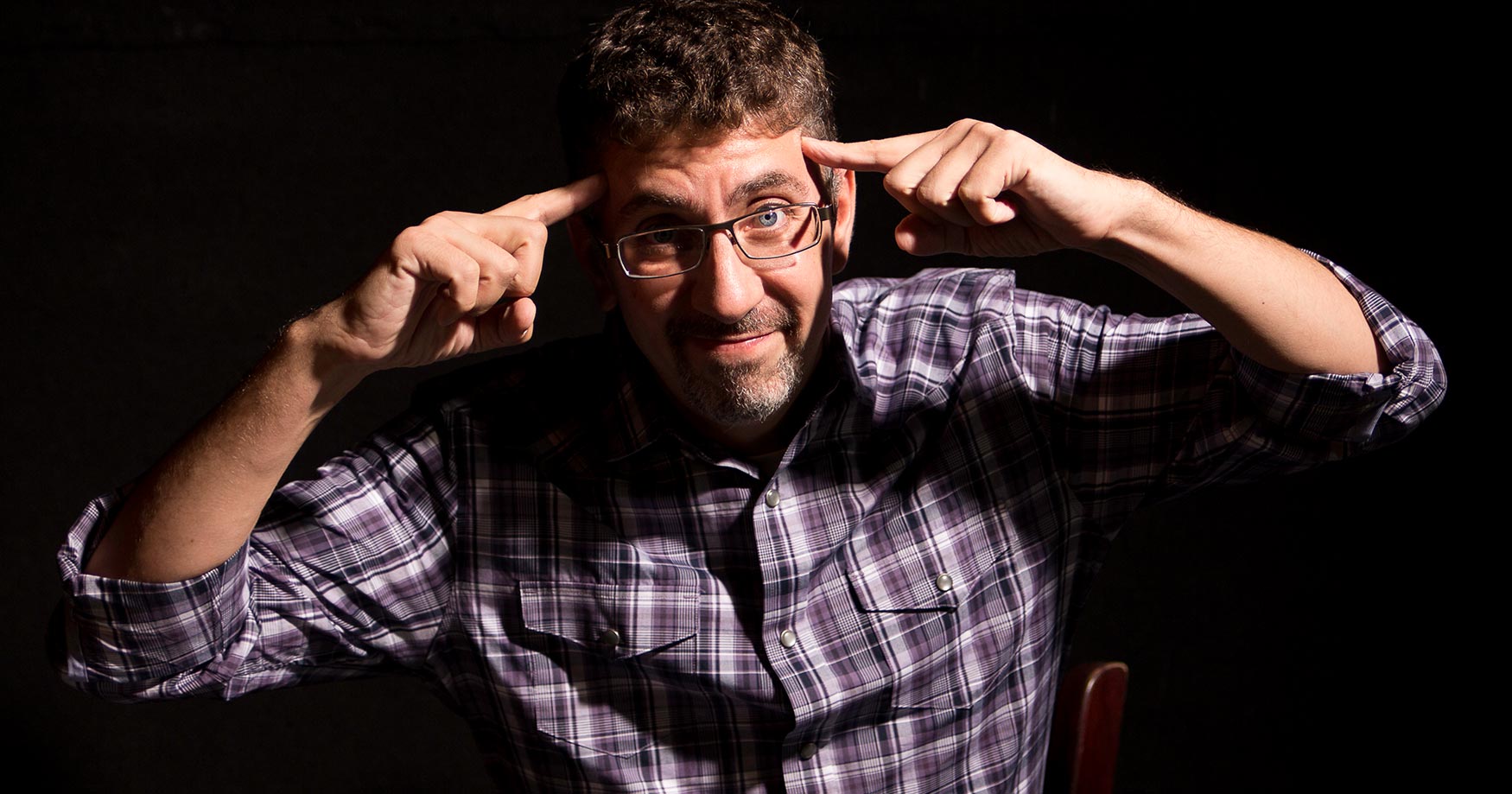![]() by Bob Lord, CEO PARMA Recordings
by Bob Lord, CEO PARMA Recordings
Those are the words my attorney said to a very frustrated young me after signing my first and only ‘traditional’ label deal, and on the merits, he was indeed correct. What a cluster.
Let me back up a step, it’s… complicated.
This is the (abbreviated!) story of how I became the CEO of PARMA Recordings, a company representing the work of thousands of artists on our labels, with a GRAMMY-winning staff of dozens across the globe, a company which since 2008 has paid and employed literally thousands of musicians for recording projects, which has done pro bono and philanthropic work to create new opportunities not just for our own artists but for the market as a whole – all with the goal of making great music in a responsible way.
(Note: Although I too am a composer and performer in addition to being a producer and CEO, I have a strict “separation of church and state” policy at PARMA Recordings regarding not only my own music but that of our staff as well. Our job is to represent our artists and dedicate ourselves to our projects with them, not feather our own creative nests, so you will never see our personal work alongside that of our artists in any capacity because I believe even the appearance of a conflict of interest is unacceptable. Yet how PARMA came to be is a direct outgrowth of my own personal musical experience, so please forgive this narrative co-mingling.)
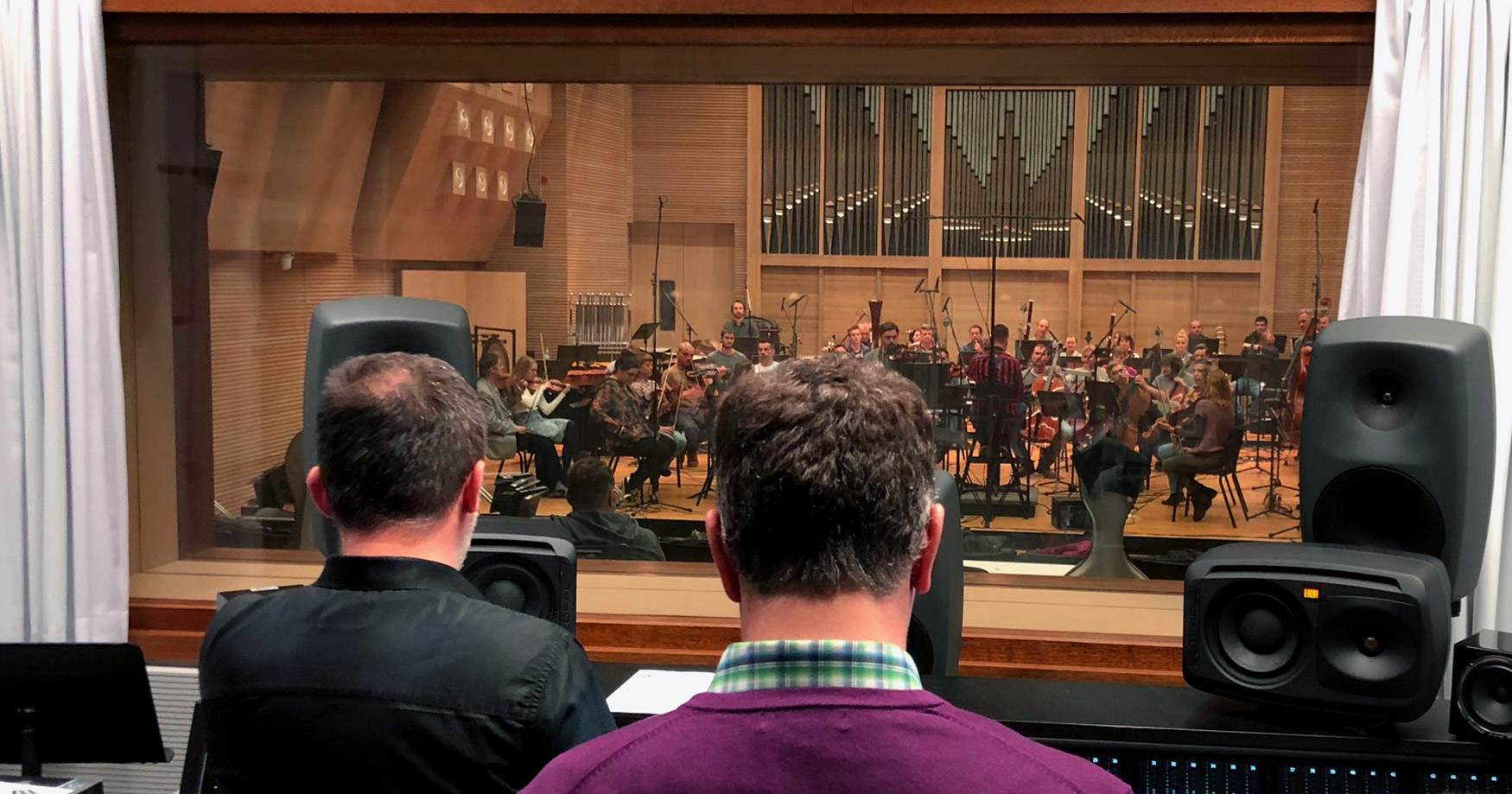
PARMA CEO Bob Lord in the studio recording Dan Brown’s WILD SYMPHONY.
I was born in 1976 and grew up with antenna TV, lots of books, and plenty of vinyl and cassettes. I learned how to type on a typewriter, used a rotary phone, and didn’t even hear about “e-mail” until I was well into freshman year at college. I was a decidedly Analog Kid. We all were.
As a young musician whose career began to come of age across the ‘90s before the advent of digital music, while I was stapling gig posters to telephone poles, licking envelopes for newsletters, and using reel-to-reel tape to make records, I did what most of us did – I chased the dream of the label deal and worked my ass off to get signed. I grew up thinking that royalties, touring, and a creative life were essentially there for the taking… so long as I got that deal. The MTV Dream, baby.
What I wanted was of course to have all the control and none of the responsibility, for somebody to invest in me and later my band (now entering our 25th year together, so help me Zeus) because of the excellence of our work, the quality of our vision, and the depth of our dedication.
In time I realized that in order to make that happen, there was a whole lot of under-the-hood work that needed to be done – a whole lot – and I wanted somebody else to do that dirty work, the business stuff, and to pay for me and my art, to pick up the tab so I could focus on what I loved then and still love most: music.
The Record Deal Cometh
But the dirty work was the work, and after recording and touring and marketing and booking and managing and generally going wild like a feral animal, I got what I wanted. It wasn’t a big deal by any means, but it was a deal, from a label that liked our stuff with a staff that seemingly wanted to invest their time and energy in us. We were in our mid-to-late 20s or so then, and while it wasn’t a huge amount of money by any stretch, we got a decent check plus the promise of future royalties, the imprimatur of a label, and a team that was going to work for us after we had worked so hard and for so long for ourselves.
When I received the contract, I marched right over to my attorney’s office to go over it in detail. Full disclosure: we didn’t have a penny to pay him, but he helped out pro bono anyway because he believed in me – and he still does, and I’ve made sure to repay that trust and pass it along to others, as I was taught to do. But that’s a story for another day.
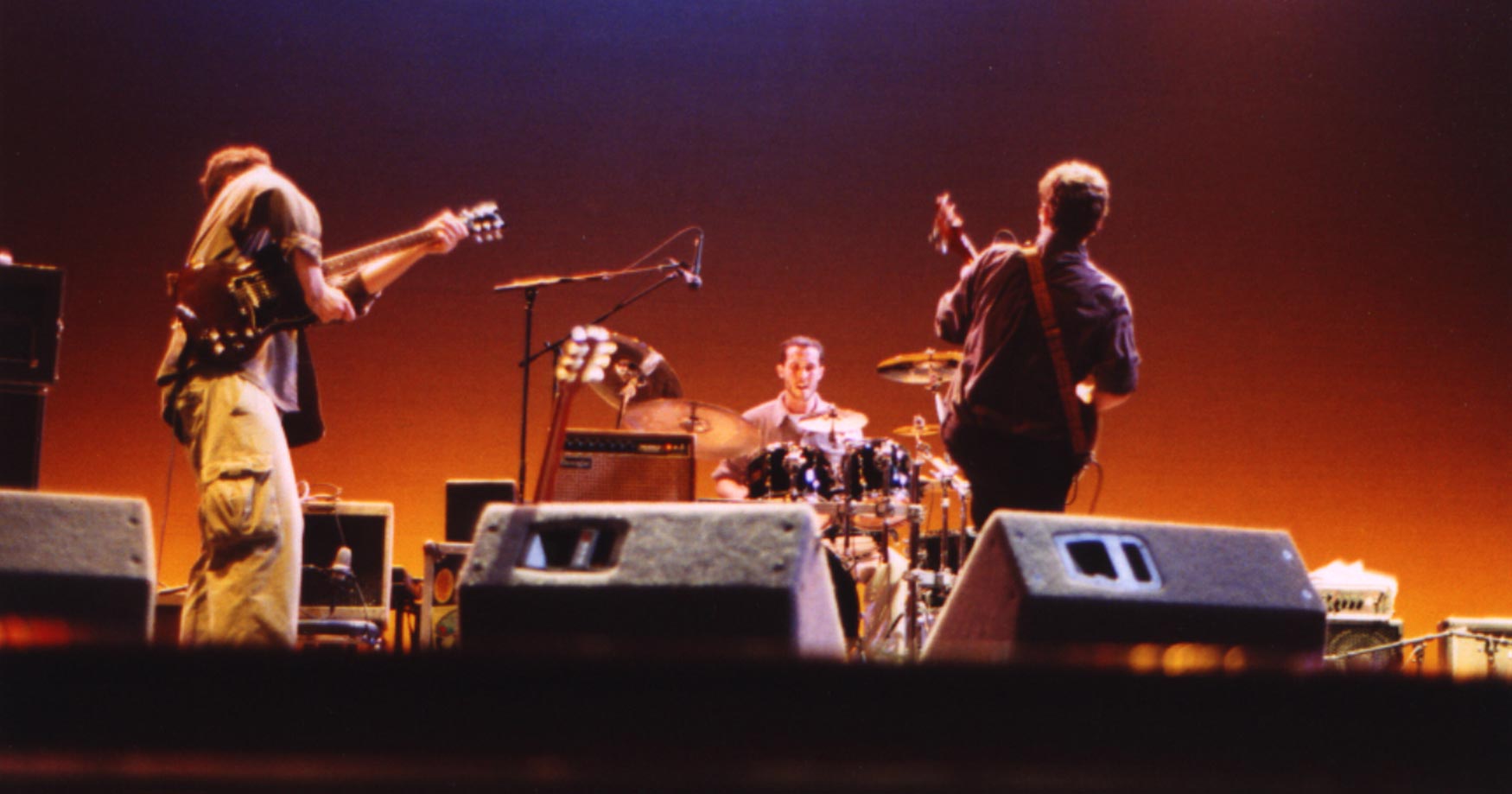
Bob Lord (right) at The Music Hall in Portsmouth NH in 2002.
The first problem in the contract was of course ownership of the master. Up until that point I owned everything I’d ever done, and while we would still retain ownership of the songwriting and publishing, the label would own the master.
I got a bit ruffled over this, but my attorney reminded me that the label was paying for the record, they were paying for the studio fees and the pressing and the promo in addition to giving us some dough, and for that they get to own the master.
I grumbled and moved on. Then we got to the creative clause in the contract, and it gave me true pause – it was the first item that spoke directly to the heart of what I perceived to be the deal, specifically the music itself.
The clause stated that the label could dictate up to a certain small percentage of the repertoire and that we would have to comply and record it. I looked at my attorney and raised my eyebrow. This was to be an album of all original music, not ‘repertoire.’
He read my mind. “You’ve got bupkis for prospects, you’ve got bupkis for money – you can’t even pay me! – and you’ve finally got a record deal in front of you.”
He didn’t say “bupkis,” but he was right regardless. I signed the contract.
Fast forward to six months or so later. We were beginning to send rough mixes to the label and we were pumped, things sounded great and we felt as if we had been imbued with mighty powers.
“Wonderful, we love it!” said the label (I’m paraphrasing a bit, this was an English-as-second-language correspondence). “It sounds fantastic and we love your music. But we think we can sell more product to our audience if you record a cover song for the record.”
OK, I thought. More product sold, more royalties, why not? So we did it.
Second batch of mixes went to the label, and we got another identical request for another cover song to be added. Hmm, I thought. But if this helps it sell… then OK, let’s do it. So we did it again.
The third time was the anti-charm. The request came in for another cover to be recorded and I threw my hands in the air. Wasn’t I supposed to be the artist? Wasn’t my band signed because we were us, not because we were someone else?
I went back to my attorney and told him how unhappy I was, how this creative clause had come back to bite me. I asked what I could do about it.
“You signed the contract, right?” he asked.
Yes, I said.
“And you cashed the check?” he asked, as his face contorted into a wince in anticipation of my answer.
Yes, I said.
“Well, you’re screwed!” (Again, he didn’t say “screwed,” but this is a family publication. For the most part.)
And in that moment I realized that the thing I fought for, the freedom I and so many others have wanted, the dream I had, all of it, was in fact a completely different animal altogether. In my zeal to have someone else pay the bill, to have someone else handle all the mechanics of the business of music-making, I had lost the very artistic control I had sacrificed so much to seemingly achieve.
We finished the record and it came out, but it left burn marks on us all. We never received any royalties. The label folded. And I had signed my masters away. Ouch.
But I did get something valuable out of the experience – the spark of PARMA had flickered in my mind.
The Catalyst
In 2005, after many years of recording and performing with my band, running my own label and booking agency, producing custom audio for media clients, and generally expanding my experience in both art and business, I began working professionally in the classical music field (again, a story for a different day!).
I had an experience then which acted as a catalyst for the implementation of my earlier realizations. I was in the studio producing a GRAMMY-winning artist who happens to be a dear friend, and I was frazzled.
There I was, producing this artist I adore, and my head was scattered. Not the mindset you want to be in when you need to focus on making music, much less with an artist like this.
I looked around the studio. Wait, I thought. Where’s the page-turner? Session starts in 15 minutes.
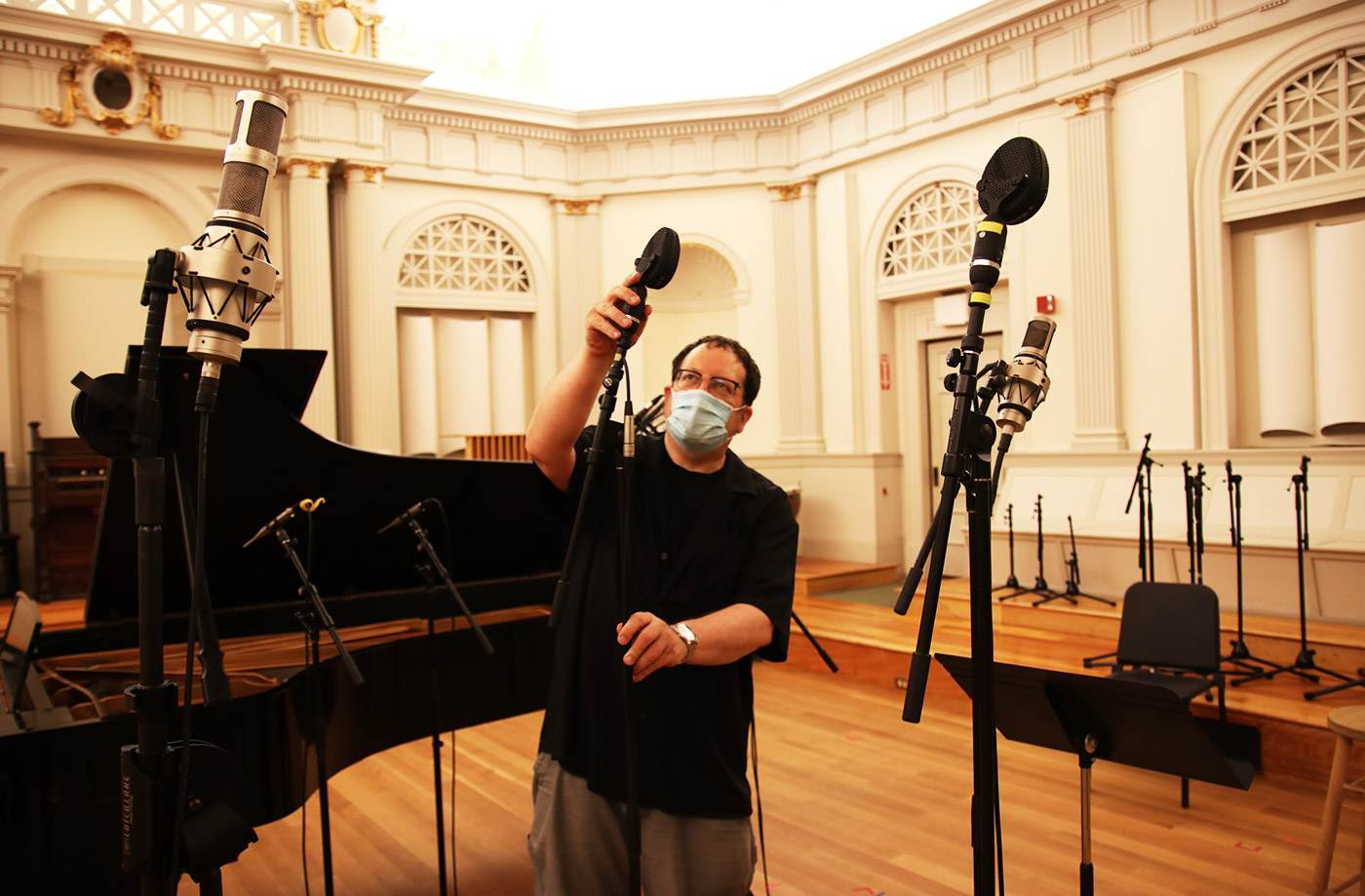
GRAMMY-nominated producer/engineer John Weston setting up a microphone at Futura Productions for a recording session.
I had coordinated everything – studied the scores carefully, mapped out my recording strategy, handled arrangements with the label, spoken with management and the publicist, made sure the engineer had everything he needed, ordered lunch to be brought in during the break, even picked up the artist at his house in the morning and planned a route home to avoid Boston traffic – and the page-turner hadn’t arrived yet.
As the beads of sweat began to collect on my forehead, I thought back to all the other records I had produced, all the sessions I had run, all the records I had released, all the performances I had booked, and I clearly saw a common theme: I had been herding cats the whole time.
This vendor here, this contractor there, this facility, that designer, this engineer, that publicist, all working on their own timelines, with their own priorities, none of which overlapped with mine more than minimally. The amount of time I had spent over the years assembling ad hoc teams for production, the amount of money I had wasted through trial and error, and the opportunity costs I had incurred by herding these damn cats… it all came crashing down on me in a moment of sublime horror and enlightenment.
There must be a better way, I thought. And where the holy hell is the page-turner.
And Awaaaay We Go
By 2008, I had the whole structure in my mind – a fully operational, vertically integrated music production company which would handle each and every aspect of the music-making process, spanning project development, contracting, in-studio recording and production, audio post, art design, manufacturing, distribution, publicity, publishing, licensing, live performance, and beyond, all working together, all focused on the same goals, leveraging economies of scale and time and opportunity.
By doing this, I could provide for others what I was unable to achieve for myself: obtaining a maximum of control and a minimum of responsibility, retaining my rights and ownership, and having a dedicated, reliable team behind me.
With one turn of the key, with everybody in-house, with everyone in the same virtual train, an artist could activate a huge array of talent to help them do that dirty work that I tried to avoid for so long and let them focus on what we as artists want and deserve: the creative process and the art itself.
The only problem was, of course, getting there! Again, another story for another day – and a long one at that.
But get there we did, poco a poco, by growing slowly and concentrically, always making sure that we did as we promised and that the trust which was given to us was uniformly kept. We have lived out our dreams and lived up to our aspirations in a multiplicity of ways, working with artists both world-famous and emerging, seasoned and just starting, award-winning and on their way there, all to help them navigate what can be a crazy, chaotic, inefficient, frustrating, pitfall-laden landscape, and to use our experience and expertise to be sure that they don’t make the same mistakes I did way back when. And I think we’ve done just that.
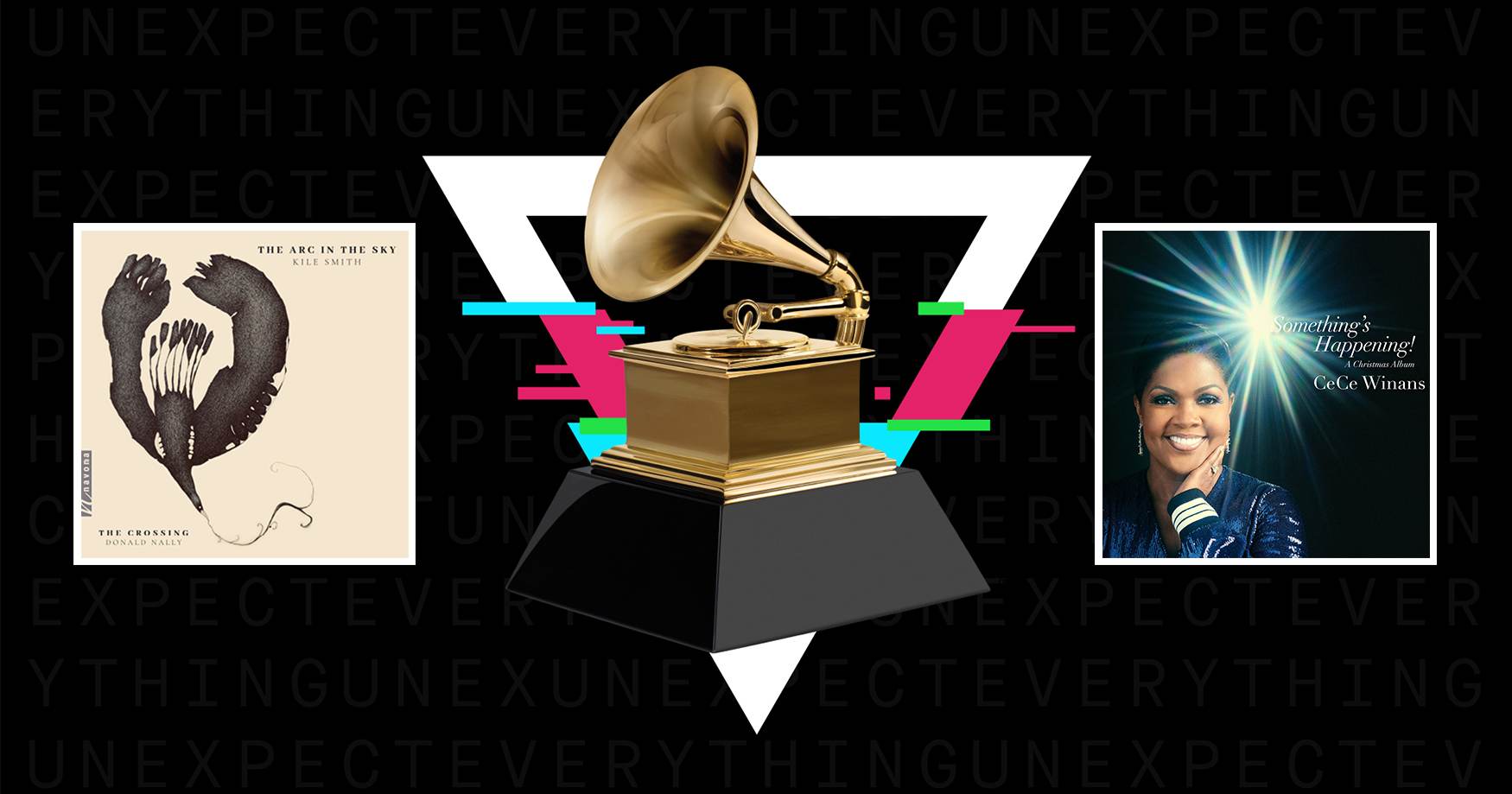
Nominated for the 62nd annual GRAMMY Awards: THE ARC IN THE SKY by The Crossing, Donald Nally, and composer Kile Smith (Navona Records), up for Best Choral Album; and Something’s Happening! A Christmas Album by CeCe Winans and featuring the Zagreb Philharmonic Orchestra (PureSpring Gospel), up for Best Gospel Album.
This Is The Why
I realize many people are suspicious of the motives of those in the music industry – after all, there’s a big body of literature on some of music’s most depraved characters, and we only need to read the news each day to find more examples – but there are those out there like us, our artists, and our partners, who feel that music and business are not in opposition and that it is essential for both to be addressed ethically, fairly, and harmoniously.
I also realize that there are those who are looking for a more traditional model, and I’m not trying to dissuade anyone from following their dreams. Just because it didn’t work for me doesn’t mean it won’t work for you! My band sounds like a hammer in a washing machine, what did I expect?
But my advice is to remember that it’s not solely a matter of paying or not paying, getting paid or not getting paid, because pay we do for our art, be it with money, time, sweat, effort, creativity, relationships, opportunities, regrets, guilt, frustration, you name it. It’s simply a matter of the cost and the form it takes. “Return on investment” can take on an infinite number of meanings and metrics depending on what you want and what you value – the key is knowing what those things mean to you.
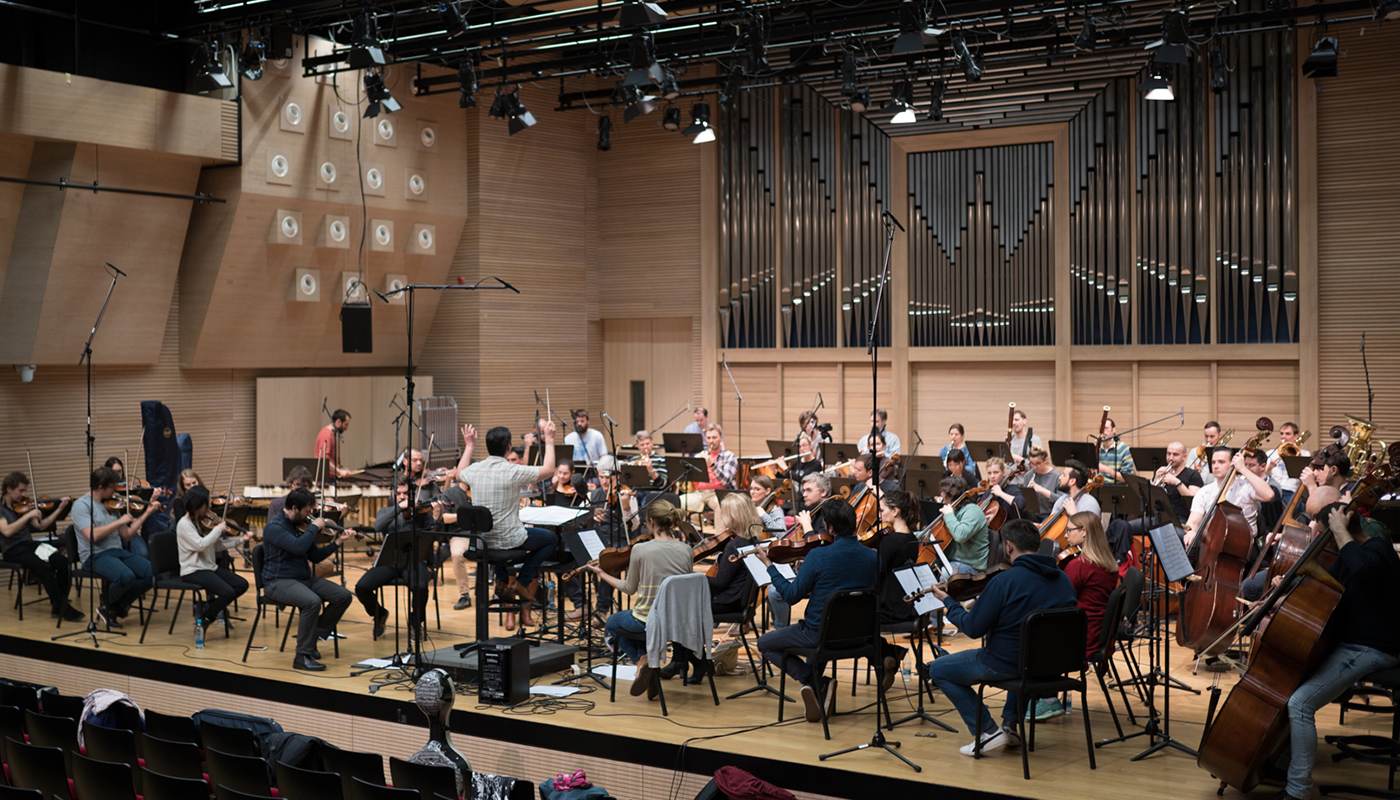
Zagreb Festival Orchestra during a recording session for WILD SYMPHONY.
As I’ve evolved from a bass player-slash-composer-slash-producer into a business owner responsible for lives, livelihoods, dreams, ambitions, and most importantly the music of others, my perspective has broadened so much. When I got that record deal with my band, it was the manifestation of a certain subset of my personal aspirations, and it represented a fulfillment of me, of us.
But even before founding PARMA in ’08, my focus had begun to shift to the careers and work of others rather than solely my own, and the further I proceed in life, the truer that has become. I actively volunteer on non-profit boards, run charitable community-driven projects, and try to do my best personally wherever and whenever I can to support those who need some help or advice. Sure, things happen, a pandemic pops up from time to time, and we are all far from perfect, but that should never stop one from doing the right thing if they are able.
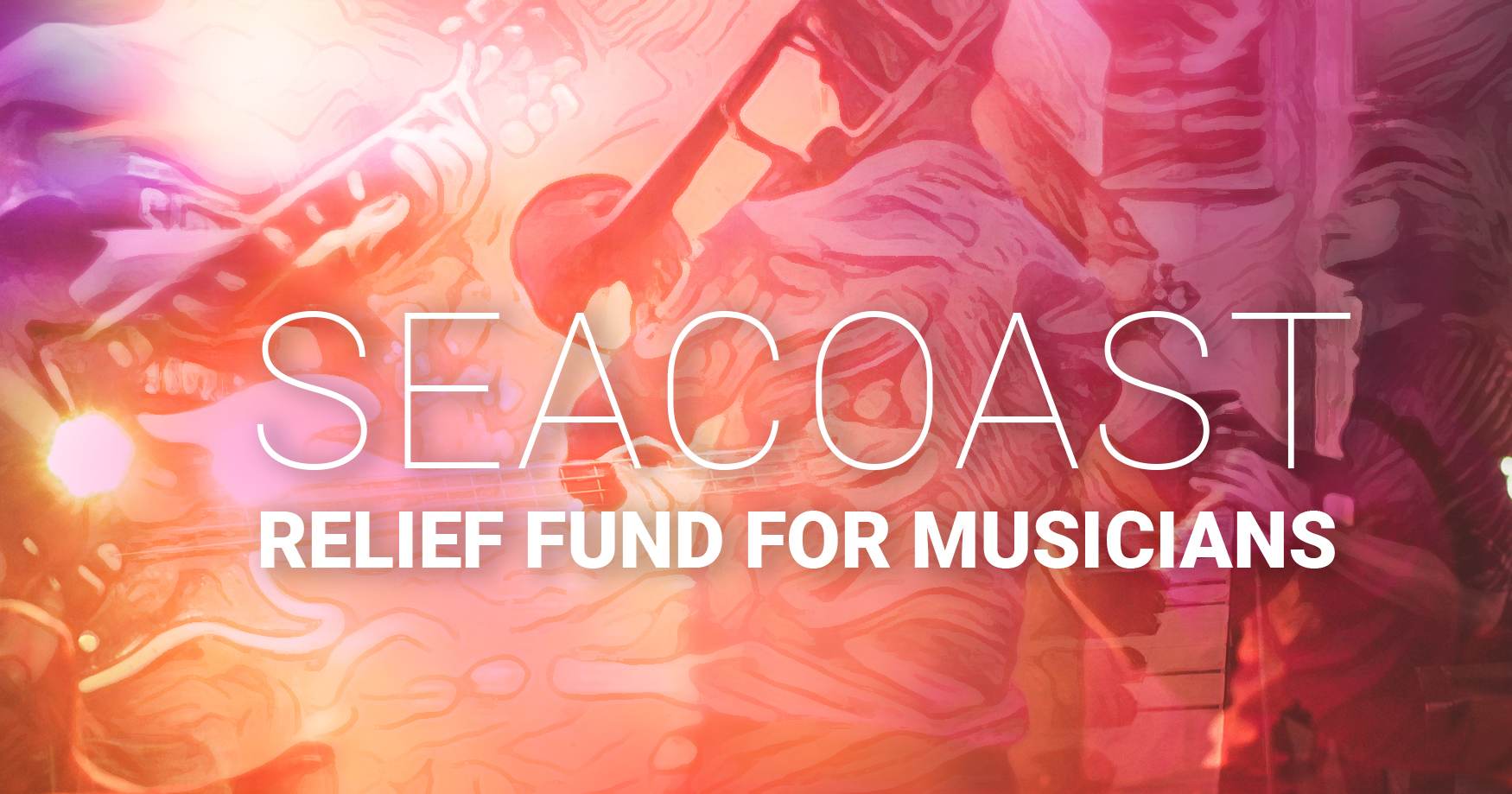
In March PARMA teamed up with Portsmouthnh.com to create the Seacoast Relief Fund for Musicians GoFundMe, to offer relief to artists in our local community.
Of course, as a CEO I need to be sure that all the bottom lines are addressed, that all the projects which we choose to undertake are safe and secure, that all the music we are entrusted with by our artists is cared for and attended to, always, continually, without pause.
It is an all-consuming job, yes, but not one without a virtuous circle, where the more we can do to help our artists and the market, the better they do, which means we can do better, and then we can do better for them, and for us, for others, for the market, and on and on.
It’s the Golden Rule – treat others as you wish to be treated – and with so little of it present in the music business, when I started PARMA I couldn’t help but feel that doing something as simple as this was the good, smart, and right thing to do. I still feel that way.
For those of you reading this who already know about me and the company, you’ll recognize some of what I’ve written here, but for those of you who are new to this wild, improbable, amazing thing called PARMA Recordings, here are some examples of our commitment, philosophy, and future plans:
We are here to help.
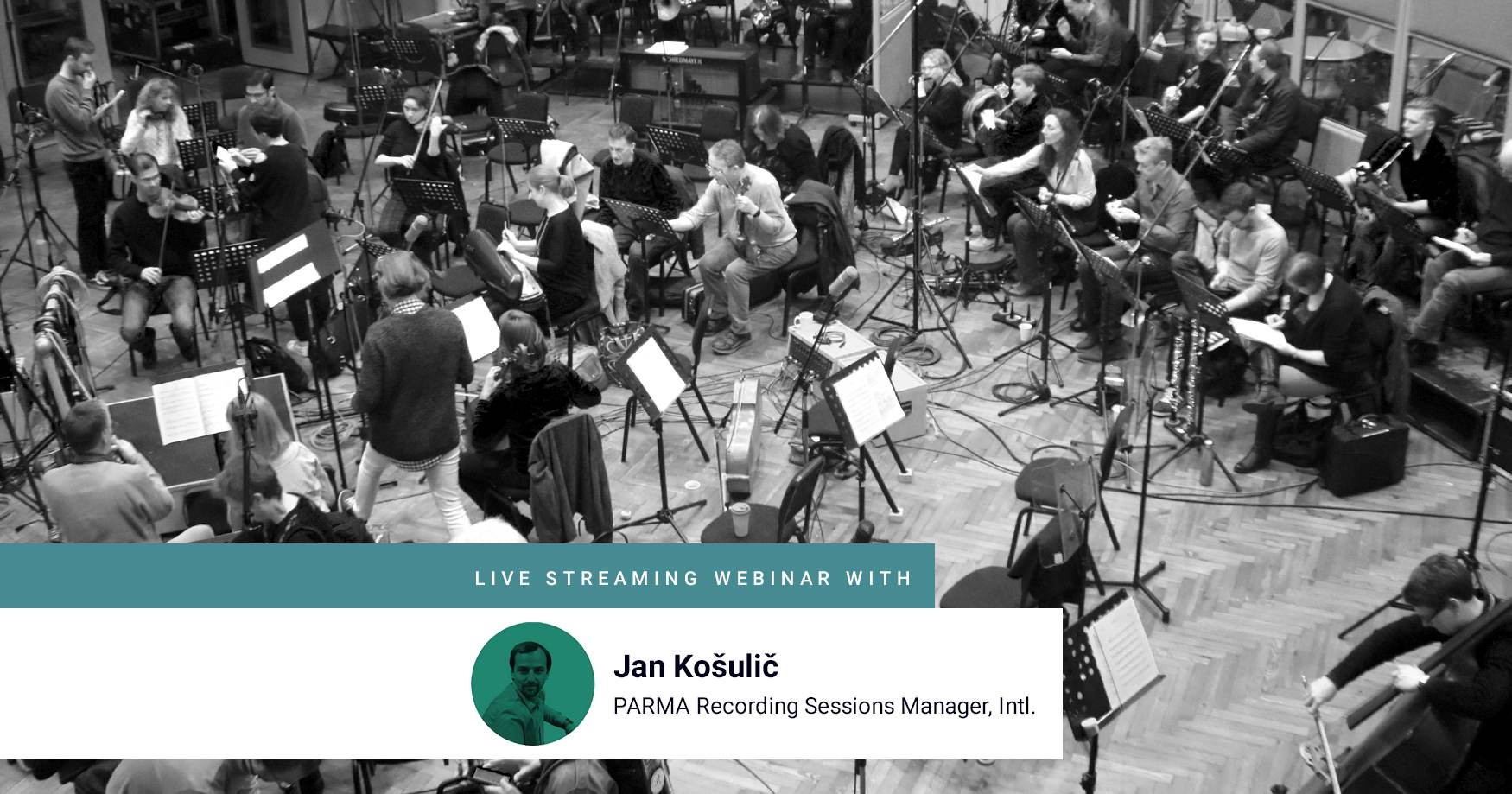
Our job is to help artists, creatives, and organizations be the best versions of themselves and their projects they can be, and to use our experience as a guide in optimization of that creative/strategic upside while mitigating the risks of a wrong step. Virtually everyone who works for PARMA is an artist, we have lived it, we have gone through it, we have endured it – we know what it is like to be a creative, and this type of artistic empathy permeates everything we do. We love it, or else we wouldn’t do it.
Rights and control are central to our mission.
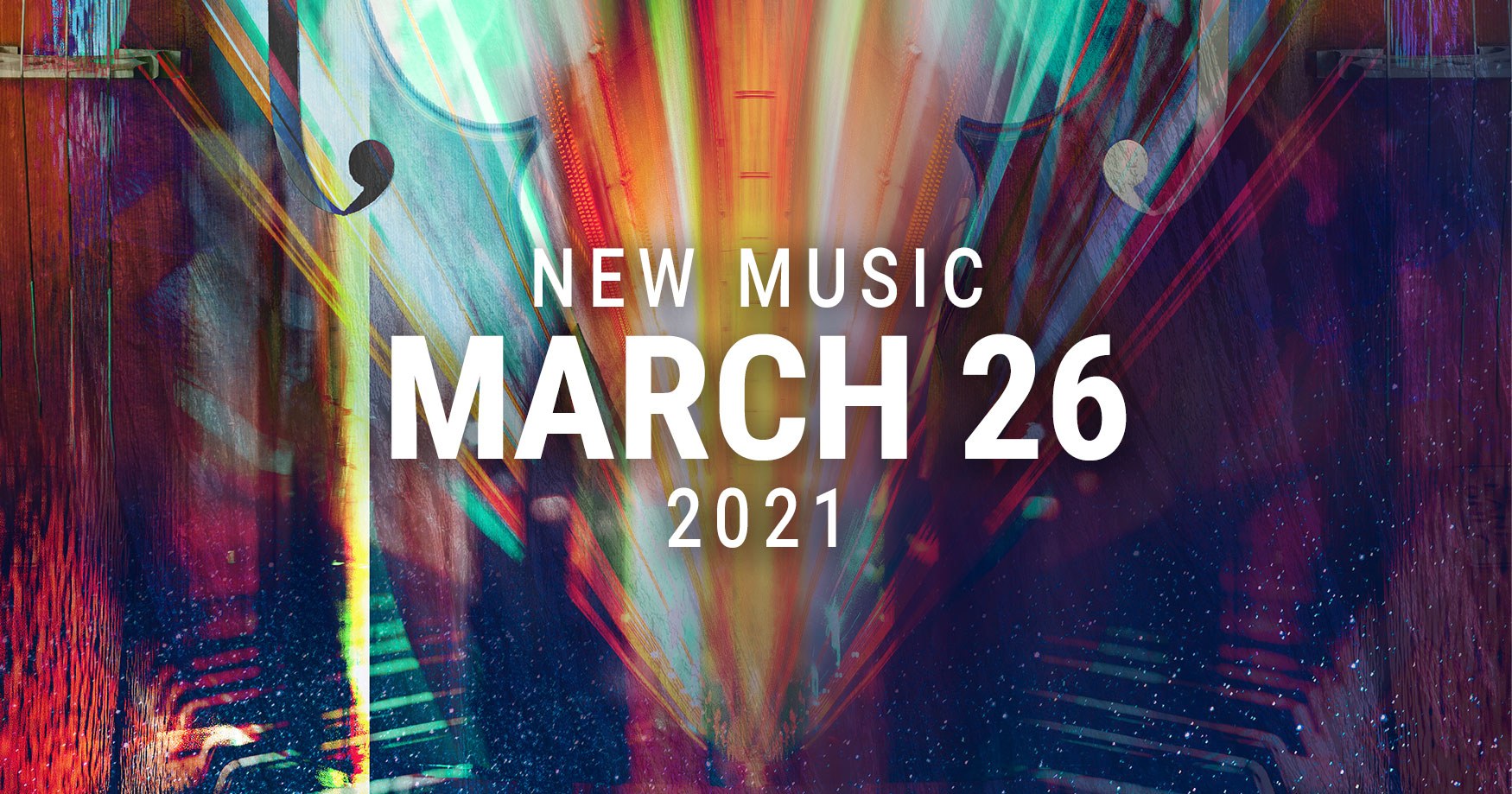
I will never forget the feeling I had when I realized that my work (even just a small portion of an aspect of it) was no longer my own, and that deeply informed how I view what we do. While it is our job to amplify and elevate the work we produce, and we must be granted certain rights to do so, it’s your stuff!
We are committed to providing work for artists.
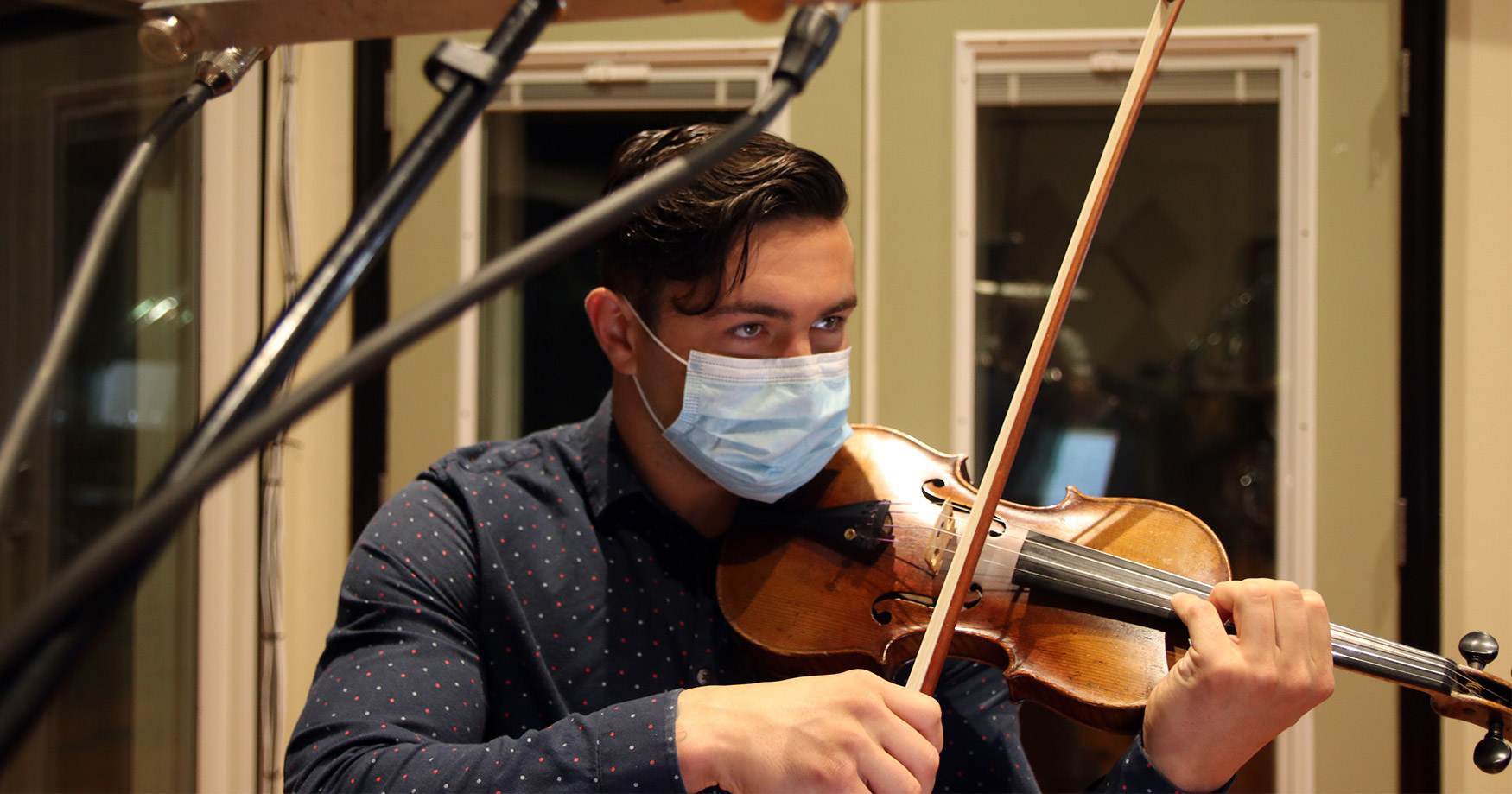
We’ve hired thousands of artists, across thousands of sessions, to work on thousands of pieces since 2008, and we were lucky enough to keep on producing – and keep musicians working – essentially right through the pandemic. We will continue to do so through 2021 and beyond.
Giving back and opening new doors to support diversity and inclusion.

Our track record of charitable work such as pro bono educational seminars, non-profit fundraising, fully-funded performance opportunities, along with our sponsorships of activities promoting diversity and inclusion, will continue to grow and expand. It’s the right thing to do.
Highlighting the work of those whose work we don’t represent and keeping our audience informed.
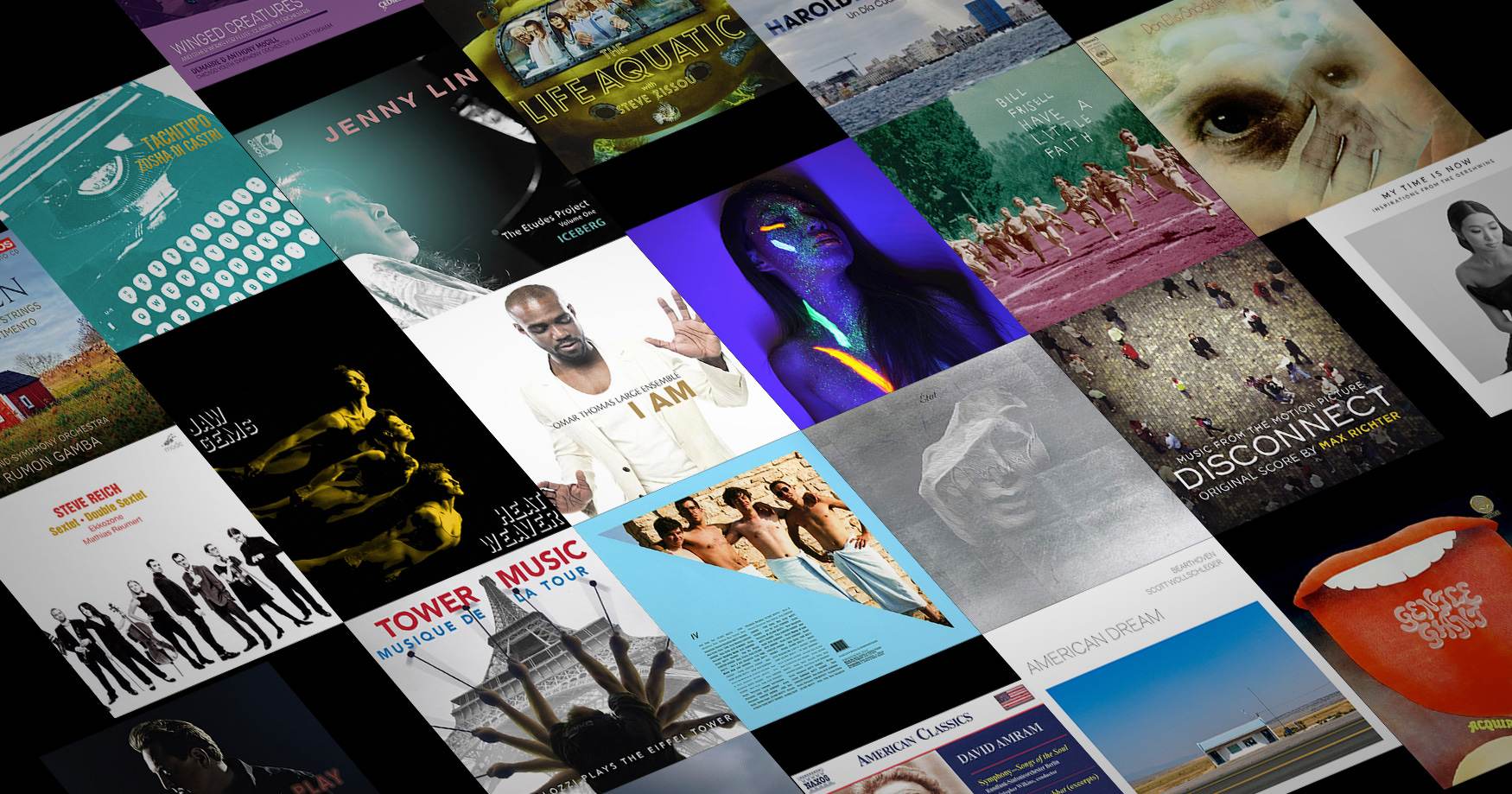
It’s a big and beautiful place out there, with more amazing music than one can ever hear, and we want to keep our artists and audiences listening to all sorts of good sounds and learning about the latest news and not just our own. We believe a more informed world is a better world.
Continued expansion of territory and service.
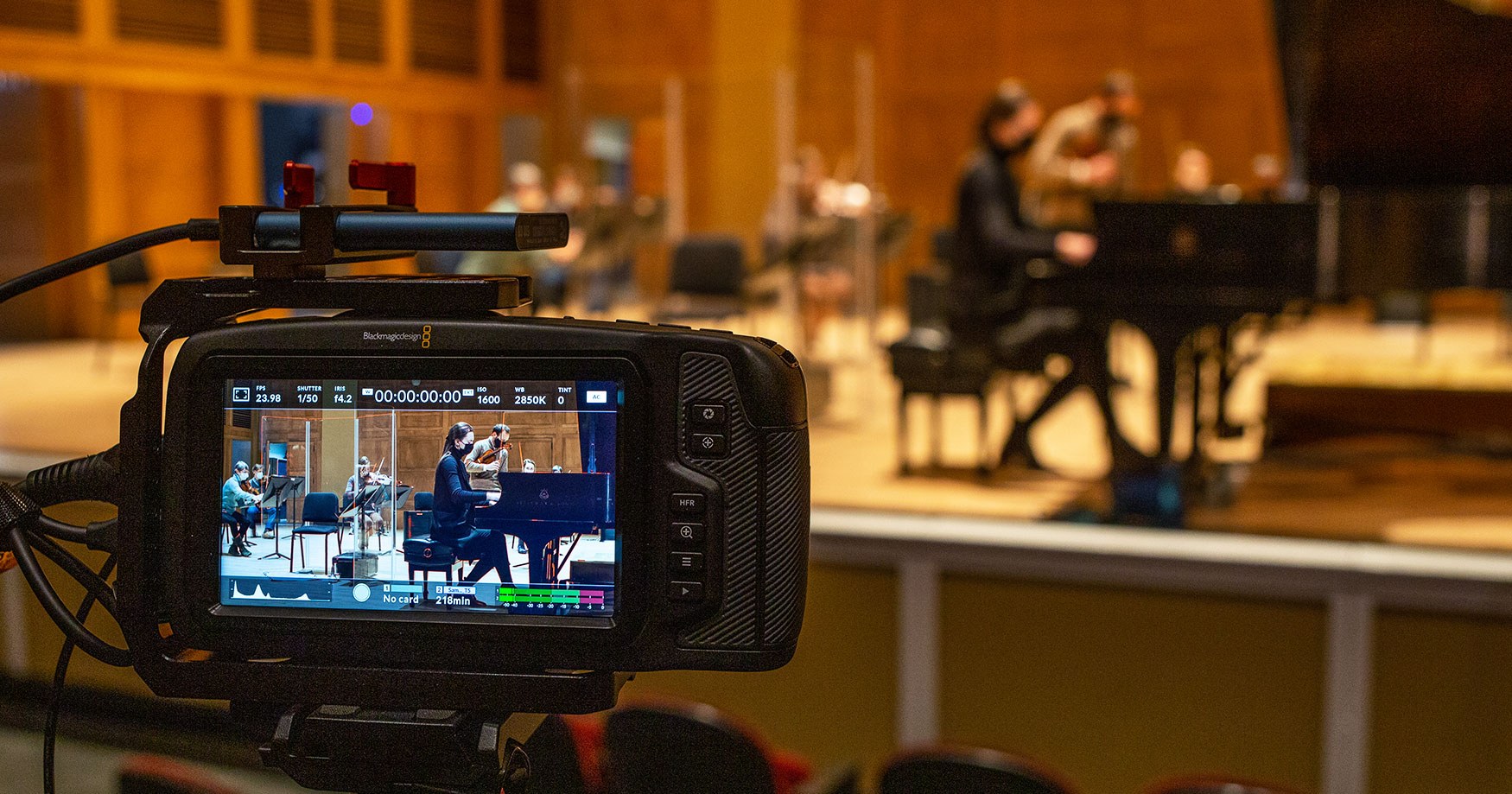
Since our founding, we’ve expanded our working area from the U.S. into territories such as Cuba, Czech Republic, United Kingdom, Croatia, Greece, China, Malta, Armenia, Serbia, Russia, and others, forging new relationships while also building out our internal infrastructure in areas of video production, digital marketing, web design, concert booking, livestreaming, and more. I see more of this expansion on the horizon.
Transparency and honesty.
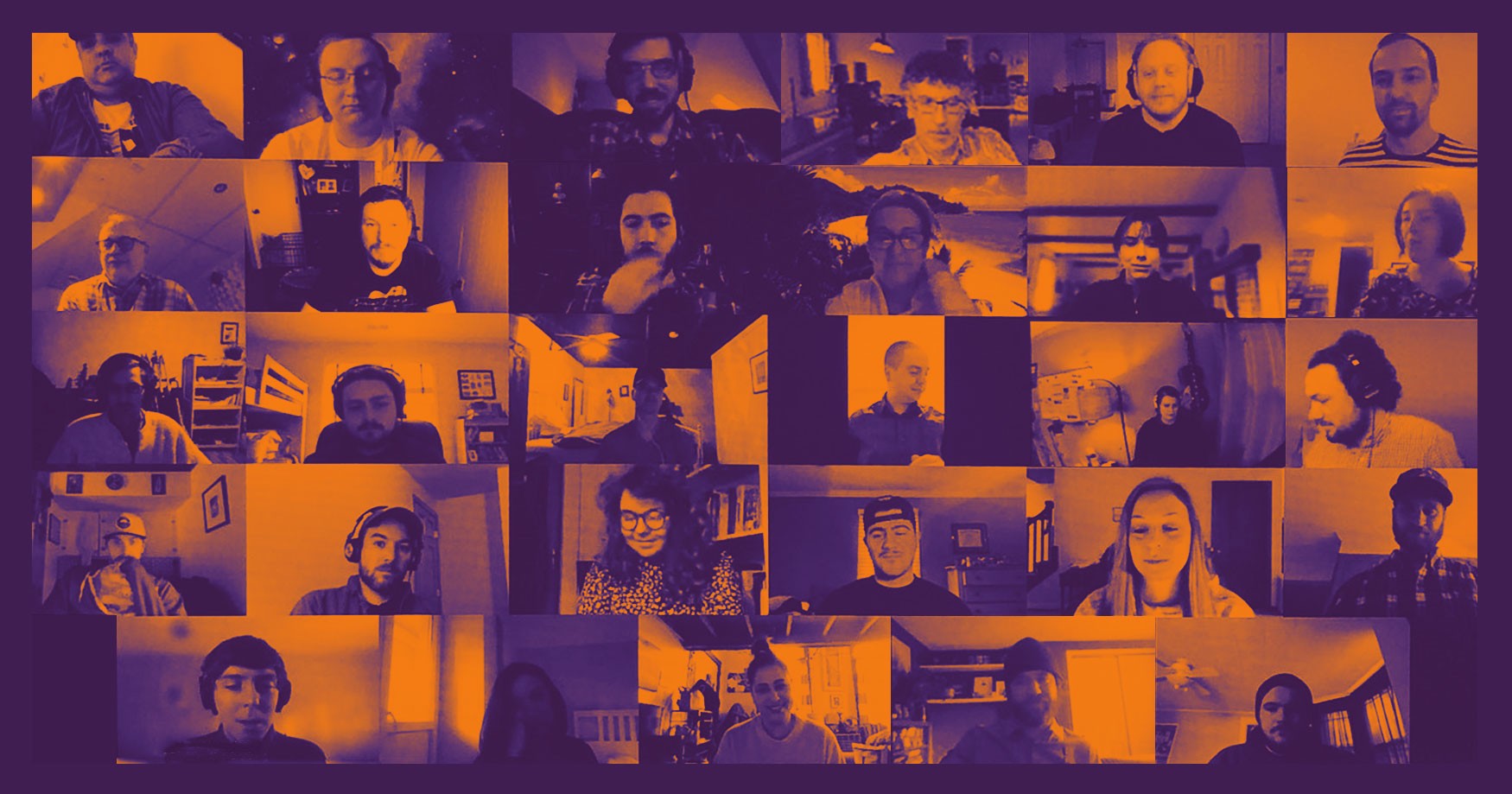
Look at those mugs on the Meet the Team page at our site! Those are all real people, with real dedication, who strap in every day and work incredibly hard on behalf of our artists and this company. We strive to be as transparent as possible in every regard, to be clear and forthright regarding our projects, and to explain everything as precisely as we can so there are no surprises. And you have our commitment that we will always be artistically honest as well, because it is in everyone’s collective best interest to be sure that the work we are doing together is the absolute best it can be. There’s no time for anything less.
It’s been a difficult period for many, but the light at the end of the tunnel seems to be visible and we are prepared to keep doing what we do, to keep improving, to keep doing better for our artists, our audience, and ourselves. This has been our commitment since the start and it will continue to be so.
Well, to quote Tony Soprano, ‘remember when’ is the lowest form of conversation, so time to get back to work – I’ve got records to make.
